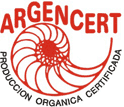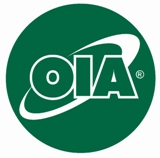Brussels, December 21 -
Today the European Commission launched the European-wide debate on the future of organic agriculture.
With the publication of its proposals for the framework of a new organic regulation, stakeholders can see if the future they have in mind for themselves is reflected in the Commission’s ideas.From an initial review of the Commission’s proposals, the IFOAM EU Group’s firstresponse is generally optimistic. In October, the IFOAM EU Group put forward the common wishes of the entire EU organic sector
"We are happy to see that many of our core suggestions can be found in the Commission’s current proposal",said the chair of regulation committee Sabine Eigenschink.
"Of course this is just the beginning", said President Francis Blake. "Much thought and discussion is still needed to create an ambitious and implementable new organic regulation. We are glad to see that the Commission has planned in ample time for much needed consultation with all stakeholders. As the voice of the European organic sector, the IFOAM EU Group looks forward to contributing to a constructive process with the Commission, the coming Austrian presidency and the The Commission has proposed a fundamental revision which stretches throughout
- It starts from a solid foundation of explicit principles. However, these principlesdiverge from the recently adopted IFOAM Basic principles, developed by the international organic sector over the last three years. This is a missed opportunity
- The scope is to be widened to include aquaculture and wine (as was calledfor). However, there is no protection of the word organic for other products of organic farming, such as textiles.
- There is specific allowance for flexibility. As requested, it should becomepossible to take into account structural and regional differences.
- Organic will remain GMO-free. Furthermore, an existing legal loophole will beclosed so that products labelled as containing GMOs can never be called organic. However, not addressing here the issue of liability in case of GMO contamination is a continuing concern.
- It is welcome news that the EU organic label will not be made obligatory,allowing full space for private labels.
- There is recognition of the role private and national organic labels play increating an innovative organic sector. However, there are concerns about the restrictions on their ability to control their own standards.
- There are changes to the way the regulation itself will be controlled, givingmore power to the Commission away from the Member States. Whilst this may be a practical solution, it should be balanced by the power of co-decision with the European Parliament.
More information: IFOAM EU Group office, phone: 02- 7352797, email: info@ifoam-eu.org (1) IFOAM EU Group recommendation of the revision: http://www.ifoam.org/about_ifoam/around_world/eu_group/pdfs/IFOAMEUpositionpaperRevision.pdf
IFOAM EU Group, c/o IUCN, Boulevard Louis Schmidt 64, BE-1040 Brussels, BELGIUM,Email: info@ifoam-eu.org, phone+32-2-735 27 97 1
















